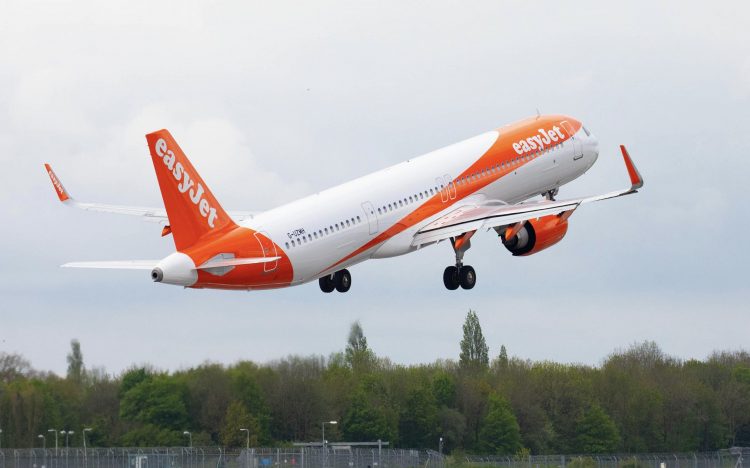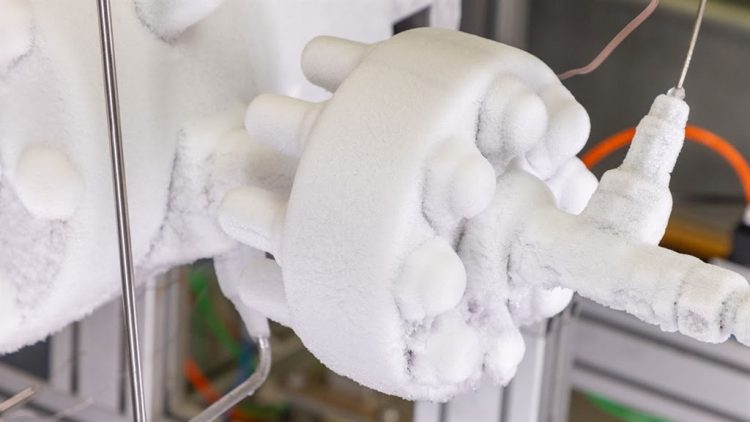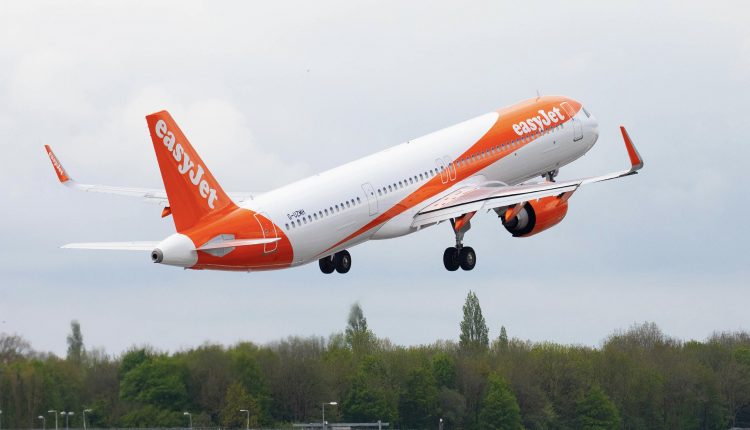Low cost airline easyJet is stepping up its plans to power aircraft with hydrogen by partnering with Rolls Royce on new research. Tony McDonough reports

Budget airline easyJet is stepping up its efforts to achieve its goal of operating hydrogen-fuelled aircraft by the mid-2030s.
It is teaming up with existing partner, aircraft engine specialist Rolls Royce, on a new research programme. This will look to test the efficiency, safety and viability of aerospace cryogenic liquid hydrogen pump systems.
As an industry aviation is supporting the battle against climate change by committing to be net zero carbon by 2050. However, committing is one thing but delivering faces difficult technical challenges.
Aviation accounts for just 2.5% of human carbon emissions but aircraft are large and visible and the sector is under intense pressure to decarbonise.
According to consultancy McKinsey, from 2005 to 2019 the aviation industry improved fuel efficiency by around 39% but absolute growth of emissions is larger than efficiency gains by far.
It is relatively straightforward to power small vehicles, such as cars and vans, using alternatives to fossil fuels. But larger transport such as ships and passenger planes are much more difficult to power using alternative methods.
Airlines, including easyJet, are experimenting with biofuels known as sustainable aviation fuel (SAF). However, McKinsey adds: “SAFs are relatively costly and have not been adopted at scale.”
Airlines such as easyJet, which operates more than 25 routes out of Liverpool John Lennon Airport, see hydrogen as a better long-term solution.
However, there remain big question marks over the credibility of hydrogen as a net zero fuel. How the hydrogen is produced is crucial. Currently most hydrogen is produced by burning fossil fuels.
There is a push by the UK Government to develop infrastructure to produce hydrogen at scale either by capturing and storing the carbon or producing it from renewable energy such as wind or solar via devices called electrolysers.
Rolls Royce has started tests at its facility at Solihull in the West Midlands. These will address a key engineering challenge of taking low-pressure liquid hydrogen, chilled below -250°C, and pressurising it so that it can then be pumped into an engine.
It has identified three technology challenges in the journey to enabling hydrogen for use in aviation: fuel combustion, fuel delivery and fuel systems integration with an engine. All elements must be confirmed to operate safely.
READ MORE: Surge in demand sees profits return at easyJet
READ MORE: Airport reveals when 100ml rule will be scrapped
In September, Rolls-Royce set a world first when tests on a full annular combustor of a Pearl 700 engine at DLR in Cologne running on 100% hydrogen proved the fuel can be combusted at conditions that represent maximum take-off thrust.
These Solihull tests now mark the start of understanding the fuel delivery element. Initial tests have focused on chilling the pump and understanding its behaviour at cryogenic conditions. Further testing will resume early next year.

Jane Ashton, director of Sustainability, easyJet, said: “Hydrogen will be a key component in helping short haul aviation to decarbonise its operations and so we welcome the continued progress in Rolls Royce’s testing programme.
“We look forward to working with Rolls-Royce to develop these new technologies which have the potential to create a true step-change in the aviation industry.”
Last year, easyJet and Rolls-Royce also set a world first by successfully running a modern aero engine, an AE2100, on 100% green hydrogen at Boscombe Down in the UK.
The test programme supports a longer-term goal for Rolls-Royce and easyJet – a full gas hydrogen ground test on a Pearl engine.
That will in turn lead to a full ground test on a Pearl engine using liquid hydrogen – both easyJet and Rolls-Royce have a shared ambition to then take the technology to flight.
The pump research tests receive financial support through the UK Government’s Aerospace Technology Institute, while the broader hydrogen test programme receives funding from easyJet.

